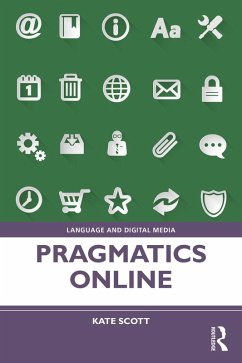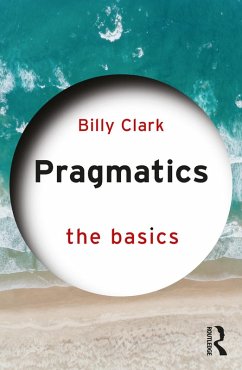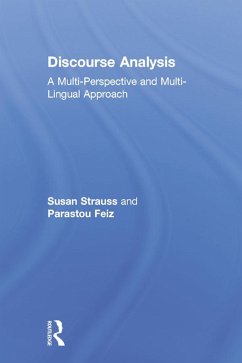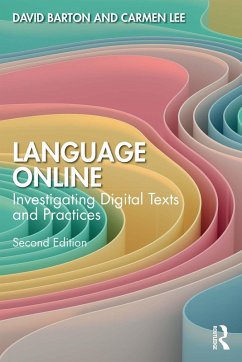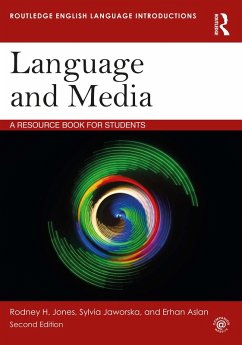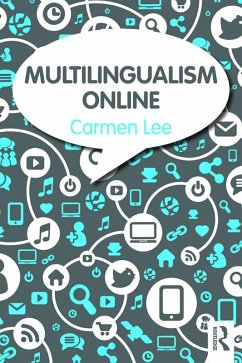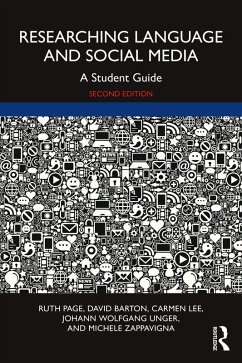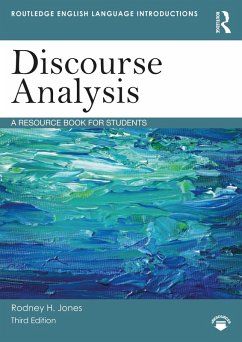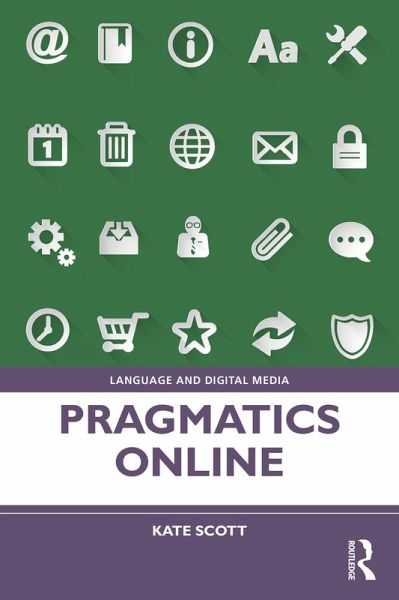
Pragmatics Online (eBook, ePUB)
Versandkostenfrei!
Sofort per Download lieferbar
39,95 €
inkl. MwSt.
Weitere Ausgaben:

PAYBACK Punkte
20 °P sammeln!
Pragmatics Online examines the use and interpretation of language and communication in digitally mediated contexts. It provides insight into how meaning is communicated online, with a focus on how users negotiate and navigate the constraints and resources of social media sites and other online contexts.The book introduces key concepts in the study of digital contexts and online communication, and discusses how these can be understood from the perspective of pragmatics. Each chapter examines a different topic and includes an overview of key research alongside original pragmatic analyses of data...
Pragmatics Online examines the use and interpretation of language and communication in digitally mediated contexts. It provides insight into how meaning is communicated online, with a focus on how users negotiate and navigate the constraints and resources of social media sites and other online contexts.
The book introduces key concepts in the study of digital contexts and online communication, and discusses how these can be understood from the perspective of pragmatics. Each chapter examines a different topic and includes an overview of key research alongside original pragmatic analyses of data. Topics include sharing and liking, emoji and emotions, memes, and clickbait. Kate Scott focuses on how ideas and topics from pragmatics can be applied to mediated contexts, irrespective of the particular media.
The book is an essential guide to the pragmatics of online discourse and behaviour for students and researchers working in the areas of digital pragmatics, language and media, and English language, linguistics, and communication studies.
The book introduces key concepts in the study of digital contexts and online communication, and discusses how these can be understood from the perspective of pragmatics. Each chapter examines a different topic and includes an overview of key research alongside original pragmatic analyses of data. Topics include sharing and liking, emoji and emotions, memes, and clickbait. Kate Scott focuses on how ideas and topics from pragmatics can be applied to mediated contexts, irrespective of the particular media.
The book is an essential guide to the pragmatics of online discourse and behaviour for students and researchers working in the areas of digital pragmatics, language and media, and English language, linguistics, and communication studies.
Dieser Download kann aus rechtlichen Gründen nur mit Rechnungsadresse in A, B, BG, CY, CZ, D, DK, EW, E, FIN, F, GR, HR, H, IRL, I, LT, L, LR, M, NL, PL, P, R, S, SLO, SK ausgeliefert werden.




